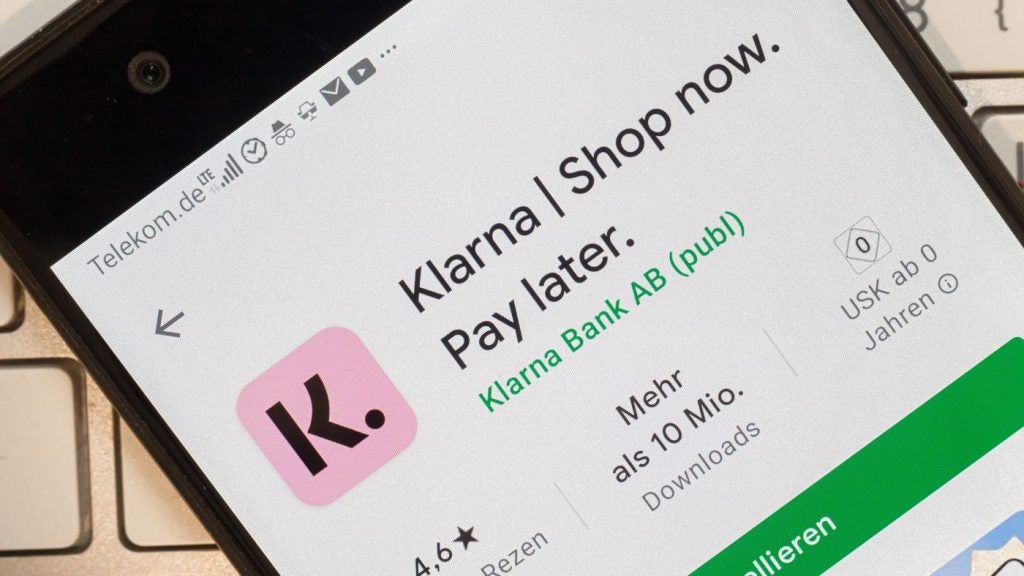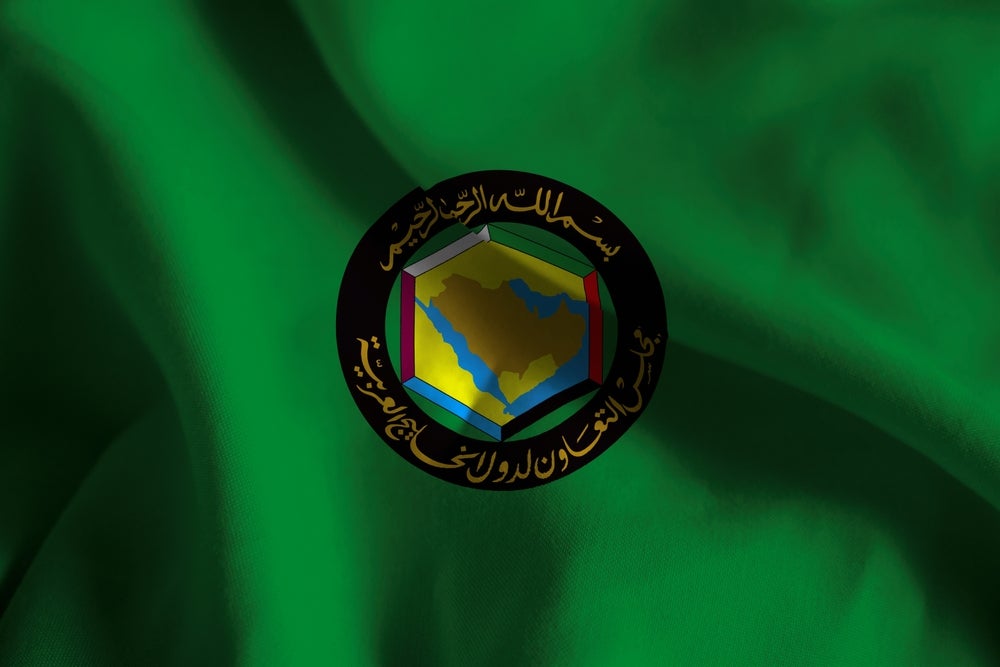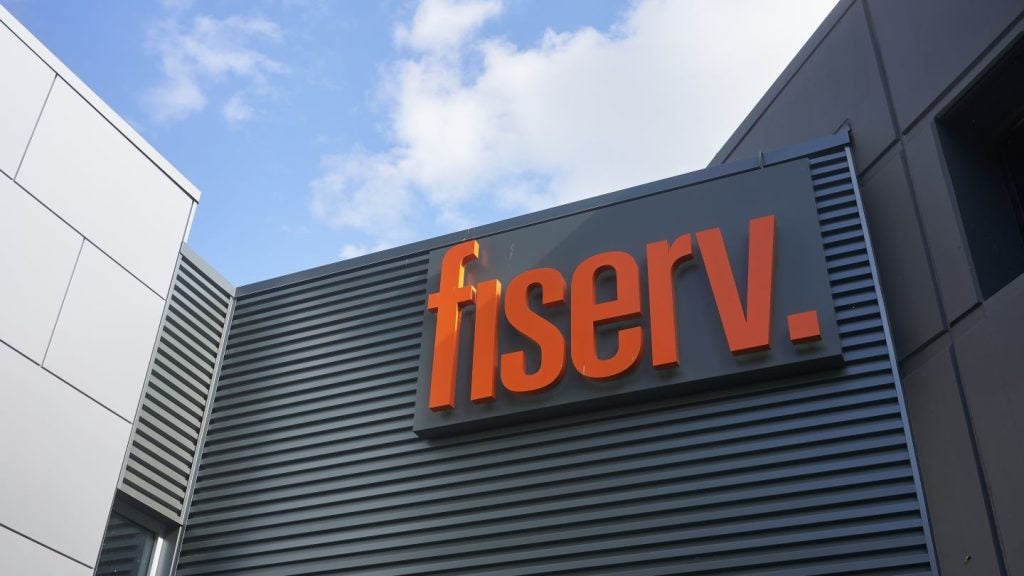REMITTANCES
MoneyGram takes poll position in Saudi
Arabia
In a strategically significant move, MoneyGram has signed an
agreement with Saudi Arabian bank National Commercial Bank (NCB)
creating a money transfer network more than ten times larger than
any other in Saudi Arabia.
Under the agreement with NCB, the largest bank in the Middle East,
1,400 ATMs in Saudi Arabia’s four major cities, Riyadh, Jeddah,
Dammam and Khobar, will be linked to the US remittance specialist’s
180,000 agent locations in 190 countries and territories.
Offering ten minute transaction delivery, MoneyGram’s remittance
service will run on NCB’s Quickpay platform and initially be
available in send-only form.
It is, however, Saudi Arabia’s remittance send market that
represents the major opportunity.
How well do you really know your competitors?
Access the most comprehensive Company Profiles on the market, powered by GlobalData. Save hours of research. Gain competitive edge.

Thank you!
Your download email will arrive shortly
Not ready to buy yet? Download a free sample
We are confident about the unique quality of our Company Profiles. However, we want you to make the most beneficial decision for your business, so we offer a free sample that you can download by submitting the below form
By GlobalDataWith some 6 million expatriates – 27 percent of the total
population – Saudi Arabia has emerged as the world’s second-largest
source of remittances after the US.
In addition, demand for send remittance services is also being
boosted by the growing number of Saudis studying, travelling and
working abroad.
MoneyGram’s regional director for the Middle East, Richard
Meredith, commented that NCB and MoneyGram would work closely to
“rapidly register expatriates.”
Based on World Bank data for 2006, remittances from Saudi Arabia
are of the order of $17 billion annually.
MOBILE BANKING
Firethorn takes data security to a new level
Security concerns feature regularly as a big concern in surveys
aimed at assessing consumer attitudes towards mobile banking and
payments.
Moving to allay concerns Firethorn, the mobile banking and payments
unit of US wireless technology developer Qualcomm, has introduced
security features that comply with the Payment Card Industry Data
Security Standard (PCI DSS).
As part of its strategy to meet the many PCI DSS, Firethorn
relocated its mobile services operation to a protected data center
that provides continuous service support.
Methods now used to protect customer data include encryption of
account information at rest and in transit, consistent monitoring
for malicious activity and provision of security awareness training
for all support staff.
In addition, Firethorn conducts regular security assessments of its
mobile services.
“We have worked hard to make sure our solution provides a level of
protection that exceeds our partners’ and consumers’ expectations,”
commented Firethorn’s president, Tripp Rackley.
INDUSTRY TRENDS
Embattled US insurers turn to e-payments
US policymakers are locked in heated debate over reform of the
world’s costliest health system, with a key issue the Obama
administration’s call for creation of a public health insurance
plan.
Private health insurers facing prospects of a public plan with the
potential to lure away tens of millions of policyholders are
fighting back with numerous strategies, including proposals that
would cut industry costs by billions of dollars.
In the forefront of cost-cutting protagonists is UnitedHealth, the
largest health insurer in the US, which estimates that use
of technology can yield savings of $332 billion over the next
decade.
Of this total, the insurer believes half could come from savings
related to the billing and payments process of which elimination of
paper cheques and paper remittance advice would alone account for
$109 billion.
Other payments-related savings would flow from creation of a
national payments clearinghouse ($41 billion saving) and increased
use of policyholder identification cards ($18 billion
saving).
Introduced by UnitedHealth in 2004, the magnetic stripe cards carry
essential policyholder information and enable health care providers
to submit claims online and receive a fully adjudicated response in
seconds.
UnitedHealth has 70 million policyholders and processes 60 billion
transactions valued at a total of $115 billion annually.
PAYMENTS PROCESSING
Logica’s clean-sweep in Turkish market
Consolidating its strong position in Turkey’s banking market, UK
technology services company Logica has completed the upgrade of the
messaging infrastructure of the Banks’ Association of Turkey’s 10
international and 38 domestic members.
With completion of the installation, Turkey’s entire high-value
payments environment now runs on infrastructure supplied by Logica
– which has been actively involved in the country’s banking market
in 1992.
Logica noted that migration to the new financial messaging platform
enables the banks to increase straight through processing (STP)
rates by automating validation and allowing them to develop their
own message validation rules. Logica’s system can handle about 5
million messages a day.
CONTACTLESS PAYMENTS
Phoolah, the solution on a mobile phone skin
Whether Phoolah will be the contactless payments killer-ap the
world has been waiting for remains to be seen, but whatever the
case this brainchild of start-up Mobile Payment Skins (MPS) hits
the US market within the next few weeks.
Nothing new, skins are custom-made vinyl covers decorated with
graphical artwork and wrapped onto a mobile phone. Specialists such
as Unique Skins and Skinit have been making personalised vinyl
mobile phone skins for a number of years.
What makes MPS’ product unique is that it comes with an embedded
contactless payment chip.
Explaining how the Phoolah concept was born, Doug Yeager, a
co-founder of MPS, said: “I thought it would be cool to pay with my
phone if I could.
“After not being impressed with solutions in this area, I knew we
had to make something that was customer focused because most people
don’t care about the technology itself, so we wanted to hide that
part. Vinyl wraps are the perfect vehicle.”
Time will no doubt tell.
CONTACTLESS PAYMENTS
Citi thinks big in India
Mustering the resources of four partners, US bank Citi’s Indian
unit has launched what it hails as one of the world’s largest and
most comprehensive contactless payments pilot projects using near
field communications-enabled mobile phones yet undertaken.
The credit card-based pilot based on MasterCard’s PayPass
contactless payment system is being undertaken in Bengaluru, a city
with a population of over 9 million.
For the pilot, US mobile payments specialist ViVOtech has supplied
underlying technology, including the NFC wallet, over-the-air card
provisioning software, smart posters, mobile coupon application and
contactless readers.
The NFC enabled mobile phone being used is the Nokia 6212 while
mobile network hosting is being provided by Vodaphone.
Indicative of the scope of the project, merchant categories
involved include department stores, food courts at shopping malls
and office buildings, restaurants, fast food chains and
bookstores.
Transactions will require a PIN validation, notes Citi.
MOBILE PAYMENTS
Japan gets mobile remittance service
DOCOMO, Japan’s largest mobile network operator, is to enter the
domestic person-to-person remittance market with a service running
on its i-mode mobile internet service platform.
Though limited to payments between DOCOMO subscribers, the new
service has a potentially substantial user base.
According to DOCOMO, 48 million of its 54 million subscribers are
users of its i-mode service, making it the world’s most popular 3G
mobile internet service.
To use the remittance service a subscriber inputs the amount to be
transferred and the payee’s mobile phone number.
The payee is then notified via an email of the payment and has the
choice of depositing the money in a domestic account or having the
amount credited to their monthly DOCOMO phone bill.
A single transfer is restricted to a maximum of ¥20,000 ($200)
while an individual payee may receive up to ¥200,000 per
month.
Charges per payment are ¥105 yen for the payer and ¥65 yen for the
payee. The payee is not charged if the money is deposited into a
Mizuho Bank account or credited to their DOCOMO phone bill.
DOCOMO is authorised to operate the service as a bank agent on
behalf of Mizuho Bank.
CONTACTLESS PAYMENTS
HSBC goes contactless in Turkey
Marking another advancement of contactless payments in Turkey, UK
banking group HSBC’s Turkish unit is to launch Advantage Hizz, a
service that will facilitate contactless payments of up to TRY30
($20) at 4,000 merchant outlets. Hizz is “fast” in Turkish.
For the project HSBC has appointed Israeli smartcard specialist On
Track Innovations (OTI) to supply contactless readers (OTI Saturn
6000) and contactless payments devices in conventional credit card
form as well as a key fob and sticker for use on, for example,
mobile phones.
HSBC is following the lead of a pioneer of contactless payments in
Turkey, Garanti Bank, Turkey’s second-largest private bank, which
launched the country’s first contactless payments pilot project in
July 2006.
OTI has been Garanti Bank’s primary supplier of contactless
solutions including readers, cards, fobs and stickers since the
launch of the bank’s Bonus Trink contactless payments programme in
mid-2007.
MOBILE PAYMENTS
Western Union throws its weight behind Zap
With the formation of an alliance with Western Union, Kuwaiti
mobile network operator (MNO) Zain has secured a significant
enhancement of the cash-out ability of its mobile banking and
payments service Zap.
Zain launched the Zap service in early 2008 in Kenya, Tanzania and
Uganda in partnership with UK bank Standard Chartered and US bank
Citigroup, and has set a target of rolling out the service in 22 of
the 24 countries in the Middle East and Africa in which it
operates.
The alliance with Western Union will enable Zap service users to
send cash transfers from participating Western Union locations
internationally and Zap customers to choose whether they want to
receive their money in cash at a Western Union agent location or in
accounts tied to their mobile phones. Money-transfer receivers who
receive funds in accounts tied to their mobile phones will be able
to pay bills, buy airtime or cash out through the Zap service at
more than 12,000 Zap agent locations in East Africa.
The world’s third-largest MNO in terms of country footprint, Zain
had 64.7 million active customers as at 31 March 2009.
SEPA
Swiss-made SEPA solution launched
Competition in the SEPA direct debit outsourced service market
continues to increase with another new entrant, Swiss financial
market infrastructure provider SIX Group, set to launch its
offering in November.
Targeting banks of all sizes in Switzerland and the 30 countries in
the Single Euro Payments Area (SEPA), the service was developed by
two SIX group units, SIX Interbank Clearing and SIX Paynet, in
conjunction with the Swiss Euro Clearing Bank and Swiss financial
institutions. SIX Group and the SECB provide the technical
requirements for the rule-confirming processing of SEPA direct
debits throughout Europe.
SIX Group was formed in early 2008 out of the merger of securities
exchange services providers SWX Group, SIS Group and electronic
payments services provider Telekurs Group. SIX Group is owned by
160 companies in the banking industry with Swiss banks dominating
with a combined equity stake of some 76 percent.
CHEQUES
UK cheque guarantee scheme to be scrapped
Heralding another step towards discouraging the use of cheques in
the UK the Payments Council has ruled that the guarantee scheme for
cheques is to be terminated. The decision by the UK’s payments
strategy organisation will bring to an end the use of cards which
guarantee cheques for between £30 ($50) and £250.
A key factor in the council’s decision to end the scheme – first
introduced in 1965 – is the waning interest in the use of cheque
guarantee cards, which has seen the number of guaranteed cheques
fall by 70 percent over the past five years.
Of the 1.4 billion cheque transactions in the UK in 2008 only 95
million (7 percent) were supported by a cheque guarantee
card.
According to the council, while there are 59.9 million cards with a
cheque guarantee feature in issue, only some 4 million consumers
still use the cheque guarantee option. Lossess sustained by banks
as a result of misuse of the guarantee totalled £43 million in
2008.
Though a date for termination of the guarantee scheme has not been
finalised the council anticipates that at the earliest it will be
in mid-2011.
MOBILE BANKING
Wincor Nixdorf selects mobile banking
partner
Wincor Nixdorf has joined the growing number of big-name payments
technology vendors to opt for a partnership approach to secure a
foothold in the mobile banking and payments market.
As its partner Wincor Nixdorf has selected fellow German company
Sevenval, a specialist in mobile internet delivery
technology.
Commenting on the partnership Thomas Certa, head of Solution
Marketing at Wincor Nixdorf said: “Our co-operation with Sevenval
means that we will be able to rely on technology components that
have proven themselves on the market.”
According to Sevenval its solution automatically adapts online
services for use on all internet-enabled devices and is already in
use at several European banks including German banks NetBank and
Postbank.
SECURITY
US Secret Service teams European
counterparts
In a joint initiative by the US Secret Service (USSS), Italian
Police and the Italian Postal Service, the war against online crime
has been taken to a new level with the formation of Europe’s first
electronic crimes task force.
The task force, based on the USSS’s domestic electronic crimes task
force, will be based in Rome and provide a forum where US and
European law enforcement agencies, the private sector and academia
can collaborate to investigate and combat computer-related
crimes.
Commenting on the initiative USSS director Mark Sullivan said:
“Cybercrime knows no borders. We believe partnerships at the
international level are essential in combating the ever-changing
landscape of cybercrimes.”
The types of investigations to be handled by the European crimes
task force will match those of its US domestic counterpart, and
include network intrusions, hacking cases, identity theft and other
computer-related crimes affecting financial and other critical
infrastructures.
MERGERS AND ACQUISITIONS
Clear2Pay bolsters consulting capabilities
Moving to enhance its consulting capabilities Belgian payment
processing technology specialist Clear2Pay has acquired Dutch
payments consultancy house Ereon for an undisclosed sum.
Clear2Pay noted that Ereon, which is primarily active in the Dutch
market, will add expertise in areas such as the Single Euro
Payments Area and Payment Service Directive, sourcing issues,
market entry models, governance and trade finance.
Ereon also provides training in payments and cash management to
banks, corporates and government institutions.
Ereon clients include global and major regional financial
institutions such as ING, ABN AMRO, Royal Bank of Scotland, Fortis
Bank and Aegon as well as payments scheme managers and banking
associations.
CONTACTLESS PAYMENTS
Lima picks contactless transit ticketing
It will be contactless payments from the start for commuters in
Lima, Peru about to start using the country’s first rapid bus
transport (RBT) network, thanks to a decision taken by
Protransporte, the city’s transit authority.
Implementation of the contactless ticketing system is being
undertaken by US technology and outsourcing services provider
Affiliated Computer Services (ACS) which will also operate the RBT
system for 14 years. The total value of the contract awarded to ACS
by Protransporte is $200 million.
Lima’s RBT system is intended to carry over 700,000 passengers a
day on a fleet of 200 busses. The City of Lima intends to build 10
other contactless ticketing solutions similar to that being
implemented on the RBT service in the next few years.
BANKING SYSTEMS
Indian Bank revamp hailed as industry model
For countless banks, the objective of replacing legacy systems with
modern infrastructure remains illusive. Not so for Indian Bank, a
102-year-old veteran of India’s banking industry, which took the
bold step of replacing its entire core banking system.
The revamp, implemented by Indian technology company Tata
Consultancy Services using its TCS BaNCS banking solution,
attracted the attention of research and advisory firm Celent which
has bestowed the title of ‘Model Bank’.
The key criterion used by Celent in Model Bank research is to
answer the question: What would it look like for a bank to do
everything right with today’s technology?
“Indian Bank is a classic example of the leapfrogging that is
happening throughout Asia,” said Celent senior vice-president for
banking Bart Narter.
He continued: “Because Indian Bank has entirely scrapped their
legacy systems, the bank is able to jump to a state-of-the-art
infrastructure with increased back office and IT efficiency and a
broader product offering.”
Indian Bank has 1,647 branches and a staff of 22,000.
PAYMENTS PROCESSING
BancTec extends its reach in Nordic region
US-based business process outsourcing (BPO) specialist BancTec has
acquired Privatgirot, a Swedish company providing electronic and
paper-based payments processing services. No financial details of
the deal concluded with Privatgirot’s owners, Sweden’s seven
largest banks, were disclosed.
“Combining Privatgirot with BancTec’s existing Nordic processing
centres will provide a market leading portfolio of payment and
document services,” said Michael Peplow, BancTech’s president
responsible for operations in Europe, the Middle East and
Africa.
According to BancTec, Privatgirot processes 110 million paper-based
payments and 10 million electronic payments annually and, in 2008,
reported total revenues of about $18 million.
In addition to payments, Privatgirot also digitises general
correspondence documents and supplier invoices. This service has a
capacity of up to 2.5 million documents per day.
Privatgirot CEO Fred Petrini has been appointed as head of
BancTec’s Nordic BPO services operation.
SECURITY
Mobile phones attract criminal attention
Increasing use of mobile phones for financial services access via
the internet is attracting the attention of criminals, warns
Kaspersky Lab.
Exacerbating risk, added the Russian security specialist firm, is
that mobile phones are the least protected devices in the entire
computing arena, leaving them at the mercy of internet
criminals.
However, it is not only mobile internet banking users that are at
risk but also those relying on the more basic short message service
(SMS) access route. This is highlighted by a serious breach of SMS
security in South Africa reported by Johannesburg daily newspaper
The Citizen which launched its story with the ominous sentence:
“SMS banking is not safe.”
According to the report, victims of the SMS scam, all customers of
mobile network operator Vodacom and Nedbank, lost a combined ZAR2.4
million ($500,000) before police apprehended the gang
responsible.
In essence, the scam is alleged to have involved a Vodacom employee
who blocked SMS messages between the bank and its customers and
diverted them to his accomplice. The SMS text included account
number and balance details.
MOBILE PAYMENTS
Luup International goes from strength to
strength
In another significant contract-win, Norwegian mobile payments
technology developer Luup International has been selected by the
National Bank of Abu Dhabi (NBAD), the largest bank in the United
Arab Emirates, to establish a mobile money transfer service across
the bank’s network spanning nine countries.
The deal with NBAD follows Luup’s recent appointment by Deutsche
Bank to implement a payments and money transfer service for its
private and corporate customers in Europe, the Middle East and
Asia.
Luup’s appointment by NBAD extends an existing relationship in the
form of the bank’s Arrow mobile short message-based domestic
banking service implemented by Luup and launched in November
2008.







